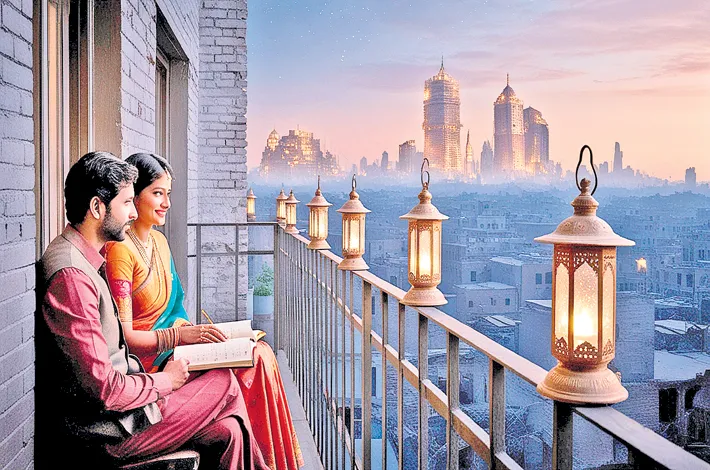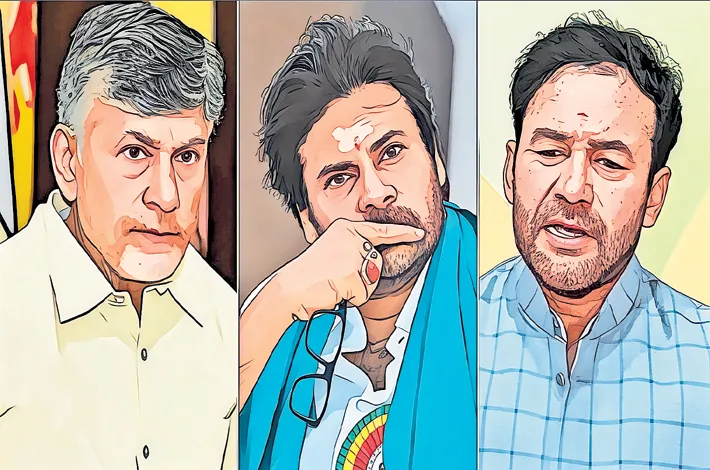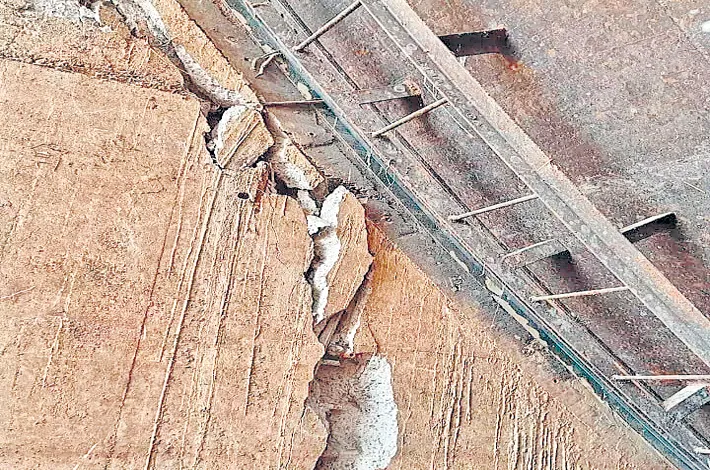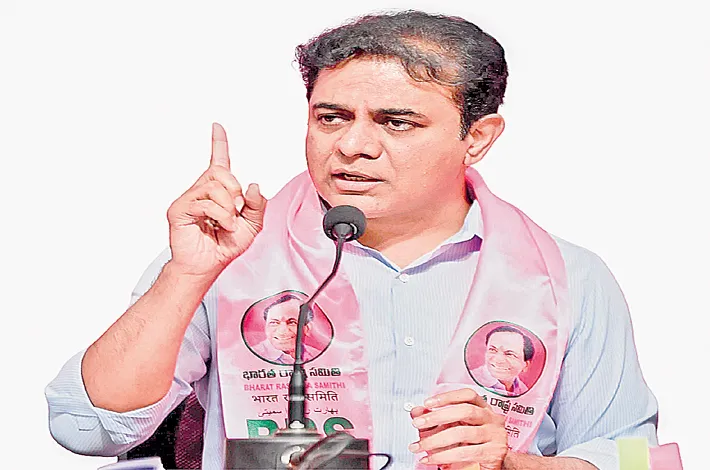Whispers Over the Wall
22-06-2025 12:00:00 AM

In the heart of a war-torn city, where the air carried the sharp tang of smoke and the distant rumble of artillery, Amina lived in a crumbling apartment block on the eastern side of the divide. The city was split by a jagged scar of concrete and barbed wire, a wall erected to separate warring factions. Amina, a nurse with calloused hands and weary eyes, spent her days tending to the wounded in a makeshift clinic, her nights haunted by the wail of sirens. Yet, in the quiet moments, she found solace in the small rooftop garden she tended—a patch of green defiance against the gray desolation below.
On the western side of the wall lived Elias, a journalist with a notebook full of stories no one dared to print. His apartment overlooked the same fractured skyline, and from his balcony, he could see the faint glow of Amina’s rooftop lanterns, flickering like stars against the chaos. They had never met, but in a city where trust was a rare currency, their lives had unknowingly intertwined.
It began with a note. Amina, in a moment of reckless hope, had tied a scrap of paper to a stone and tossed it over the wall one evening. “I’m still here,” it read, with a pressed daisy tucked inside. She didn’t expect a reply—throwing messages was a childish act, a fleeting rebellion against the isolation. But the next night, a stone landed in her garden, wrapped in a page torn from a notebook. “So am I,” it said, in neat, slanted handwriting. “What’s your name?”
Amina hesitated, her fingers tracing the words. Names were dangerous in a place where identities could be weaponized. But something about the daisy she’d sent, now returned with a faint smudge of ink, made her heart stutter. She wrote back: “Amina. I grow flowers. What do you do?”
Over weeks, stones wrapped in notes flew over the wall. Elias told her of his days dodging checkpoints to interview survivors, his nights spent scribbling truths that might never see daylight. Amina shared stories of her patients—children who still laughed despite shrapnel scars, elders who whispered prayers for peace. They exchanged fragments of their lives: Amina sent a leaf from her basil plant; Elias sent a poem scrawled on a cigarette pack. Each note was a risk, a thread of connection in a city determined to sever them.
The wall was patrolled, snipers perched in skeletal buildings, but the rooftop was their sanctuary. Amina began to wait for the soft thud of Elias’s stones, her heart racing as she unraveled each one. His words were careful but warm, like a fire banked to avoid detection. “I saw a bird today,” he wrote once. “It flew over the wall like it didn’t know it was there. I envied it.” Amina smiled, picturing him—a man she’d never seen, yet felt closer to than anyone.
One night, under a moon obscured by smoke, Elias’s note was different. “I want to hear your voice,” it read. “Tomorrow, midnight, at the wall’s broken corner near the old market. I’ll whistle twice.” Amina’s breath caught. The broken corner was a no-man’s-land, a place where bullets often outran hope. But the thought of his voice, of giving form to the man behind the words, was a pull stronger than fear.
At midnight, she slipped through the shadowed alleys, her scarf tight around her face. The city was eerily quiet, the usual gunfire replaced by an uneasy truce. At the wall’s jagged edge, where rubble spilled like a wound, she heard it—two soft whistles, faint but clear. Her heart pounded as she stepped closer, peering through a gap in the concrete.
“Elias?” she whispered.
“Amina,” came a low voice, warm and real. In the dim light, she saw the outline of a man—tall, with tousled hair and eyes that caught the moonlight. They couldn’t touch, couldn’t cross the divide, but they sat on opposite sides of the wall, backs pressed against the cold stone, and talked. His voice was gravelly, laced with exhaustion and hope; hers was soft, steady, like the rhythm of her garden’s growth. They spoke of small things—her favorite flower, his childhood dog—avoiding the war that loomed like a third presence.
“I wish I could see you,” Elias said, his voice muffled by the wall.
“You will,” Amina replied, her fingers brushing the concrete as if it could carry her touch to him. “When this ends.”
But the war didn’t end. Days later, shelling resumed, heavier than before. Amina’s clinic was hit, and she worked through the night, blood staining her hands as she fought to save lives. Elias’s notes stopped coming. The silence was worse than the explosions. She threw stones over the wall, each one heavier with desperation. “Are you there?” she wrote. No reply.
Weeks passed, and Amina’s hope withered like untended plants. The rooftop garden drooped, neglected as she poured herself into the clinic. Then, one dawn, as she swept debris from her plants, a stone landed at her feet. Trembling, she unwrapped it. “I’m alive,” it read. “Got caught in a raid. Couldn’t write. I’m sorry.” Tucked inside was a new daisy, wilted but whole.
Amina wept, clutching the note. That night, she threw back a message: “Don’t scare me like that again.” They resumed their exchange, but the war grew fiercer, the wall more impenetrable. Elias wrote of a rumor—a ceasefire might be near. Amina clung to it, though hope felt like a wound.
One evening, as gunfire stilled and a fragile quiet settled, Elias’s note was bold: “Meet me again. Same place. Tonight.” Amina went, her heart a tangle of fear and longing. At the broken corner, she heard his whistle. This time, the gap in the wall seemed wider, as if the city itself was softening. They reached through, fingers brushing for the first time—his warm, hers trembling. It was fleeting, but it was enough.
“I love you,” Elias whispered, the words raw against the chaos.
“I love you too,” Amina said, her voice breaking.
The war raged on, but their stones kept flying, each one a promise. In a city divided, their love was a quiet rebellion, growing like Amina’s flowers—fragile, stubborn, and alive.








